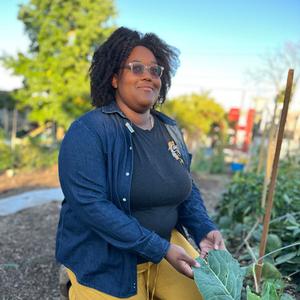
Navigating Friendship and Social Dynamics in High School: Tips for Maintaining Good Mental Health
Navigating the complex world of high school social life can be a challenge, but it's an important part of maintaining good mental health.
By Justina Thompson — March 18, 2024

High school is a time of great change and growth for many students. It's a time when social dynamics can shift rapidly, leaving some students feeling lost or overwhelmed. Navigating the complex world of high school social life can be a challenge, but it's an important part of maintaining good mental health.
One of the keys to navigating friendship and social dynamics in high school is understanding the importance of connection. Human beings are social creatures, and we all need social support to thrive. This is especially true during adolescence, when peer relationships become more important than ever. However, it's not just about having friends — it's about having healthy, positive relationships that support your mental health and well-being.
So, how can high school students navigate these social dynamics in a way that supports their mental health? Here are some tips:
Be Yourself
In high school, it's common to feel like you have to fit in with a particular group or conform to certain standards to be accepted. Trying to be someone you're not can be emotionally draining and damaging to your mental health. It's so important to focus on being true to yourself and finding friends who appreciate and accept you for who you are.
One of the essential parts of healthy relationships is authenticity. When you're authentic, you build connections with others based on shared values and interests, rather than shared appearances or trends. This can lead to deeper and more fulfilling relationships that support your mental well-being. Being authentic, means identifying your values and interests and pursuing them unapologetically. Exploring new hobbies or interests, or simply expressing your opinions and feelings honestly all plays into this. The more you embrace your true self, the more confident and comfortable you feel in social situations. You don't have to be someone else to be accepted; the right people will appreciate you for who you are.
Set Boundaries
Setting boundaries is crucial for maintaining good mental health in high school. It's essential to communicate your needs and expectations with others and preserve your sense of self. Practice setting boundaries with friends and peers, whether it's saying "no" to something you're uncomfortable with or asking for space when you need it. Remember that setting boundaries is not about being selfish or unkind, but about prioritizing your well-being. It's okay to prioritize your mental health and say "no" to things that don't align with your values or make you feel uncomfortable. By setting boundaries, you establish healthy relationships and preserve your mental health in the challenging social dynamics of high school.
Practice Active Listening
Communication is key in any relationship, but it's especially important in high school when social dynamics can be complicated. Practice active listening when you're talking to friends or peers. This means really paying attention to what they're saying and responding thoughtfully. Active listening can help prevent misunderstandings and promote better communication.
Seek Out Positive Relationships
Not all friendships are created equal. Some friends may be toxic or negative, while others may be positive and supportive. Seek out relationships with people who make you feel good about yourself and who support your goals and values. Positive relationships can help build confidence and resilience.
Take Care of Yourself
Self-care is an important part of maintaining good mental health. This means paying attention to your physical, emotional, and mental needs. First and foremost, make sure you're getting enough sleep. Sleep is essential for regulating mood and cognitive function, and it's important to establish a consistent sleep schedule. Additionally, make sure you're eating well and staying hydrated. A balanced diet can help regulate mood and energy levels, and staying hydrated is essential for overall health.
Consider incorporating relaxation techniques into your routine. Meditation, yoga, or deep breathing exercises can help reduce stress and anxiety. Making time for self-care activities can help you feel more centered and in control, even in the midst of social upheaval. By prioritizing your own well-being, you'll be better equipped to navigate the complex social landscape of high school.
Find Healthy Ways to Cope with Stress
Navigating the social landscape of high school can be a challenging experience, and it's essential to prioritize your mental health during this time. One key aspect of maintaining good mental health is finding healthy ways to cope with the stress that often accompanies the high school experience. Coping strategies like talking to a trusted friend or family member, practicing mindfulness, or engaging in a relaxing activity like reading or listening to music can help you manage your stress levels and maintain a positive mindset. It's also important to remember that everyone experiences stress differently, so it's crucial to find coping strategies that work for you personally. By prioritizing your mental health and finding healthy ways to manage stress, you can navigate the ups and downs of high school friendships with greater ease and confidence.
Get Help When You Need It
f you're struggling with your mental health, don't hesitate to get help. Talk to a trusted adult like a teacher or counselor, or reach out to a mental health professional. There's no shame in asking for help when you need it, and getting support can help you navigate the challenges of high school social dynamics more effectively.
Navigating friendship and social dynamics in high school can be challenging, but it's an important part of maintaining good mental health. By being true to yourself, setting boundaries, seeking out positive relationships, practicing active listening, taking care of yourself, finding healthy ways to cope with stress, and getting help when you need it, you can build strong, supportive relationships that will help you thrive.

Justina Thompson
Justina "Farmer J" Thompson is the Farm Education and Volunteer Manager at Urban Creators, Philadelphia, PA. Justina intentionally attended school in Philadelphia so she could “connect her passion and experience to the ongoing environmental justice work in the area.” As a speaker, educational curriculum designer, program leader, and community organizer, Justina possesses extensive knowledge on urban farming inspired to work in the field of environmental justice from a young age.
What Extracurriculars Are Right for Your Ninth Grader?
May 16, 2024
Encouraging Independence: How to Help Your Ninth Grader Take Ownership of Their College Prep Journey
May 9, 2024
